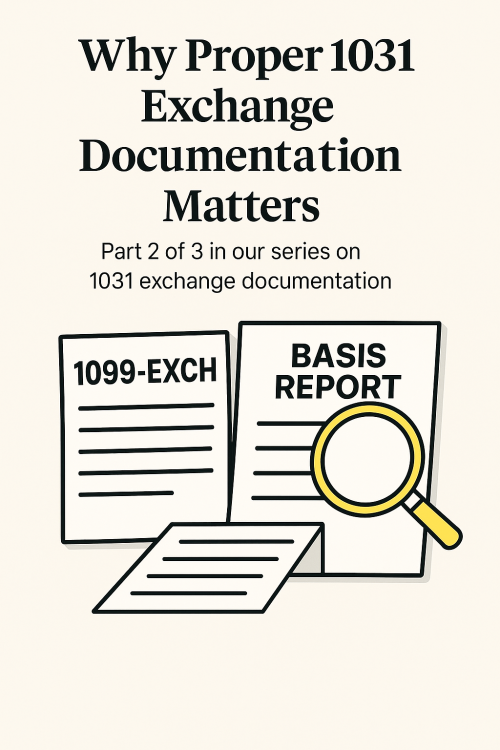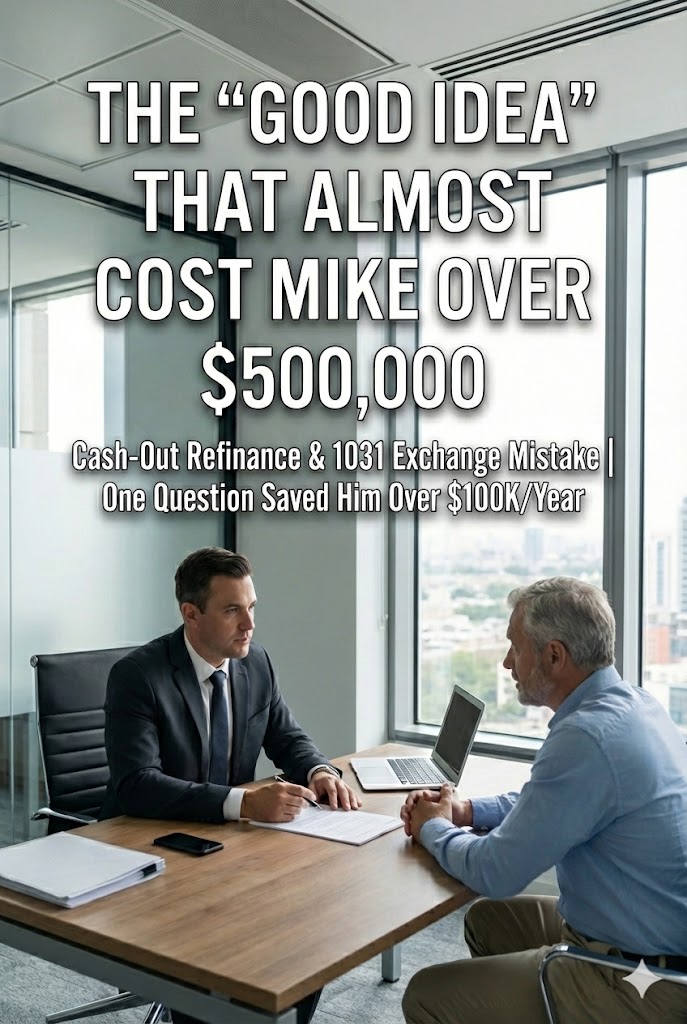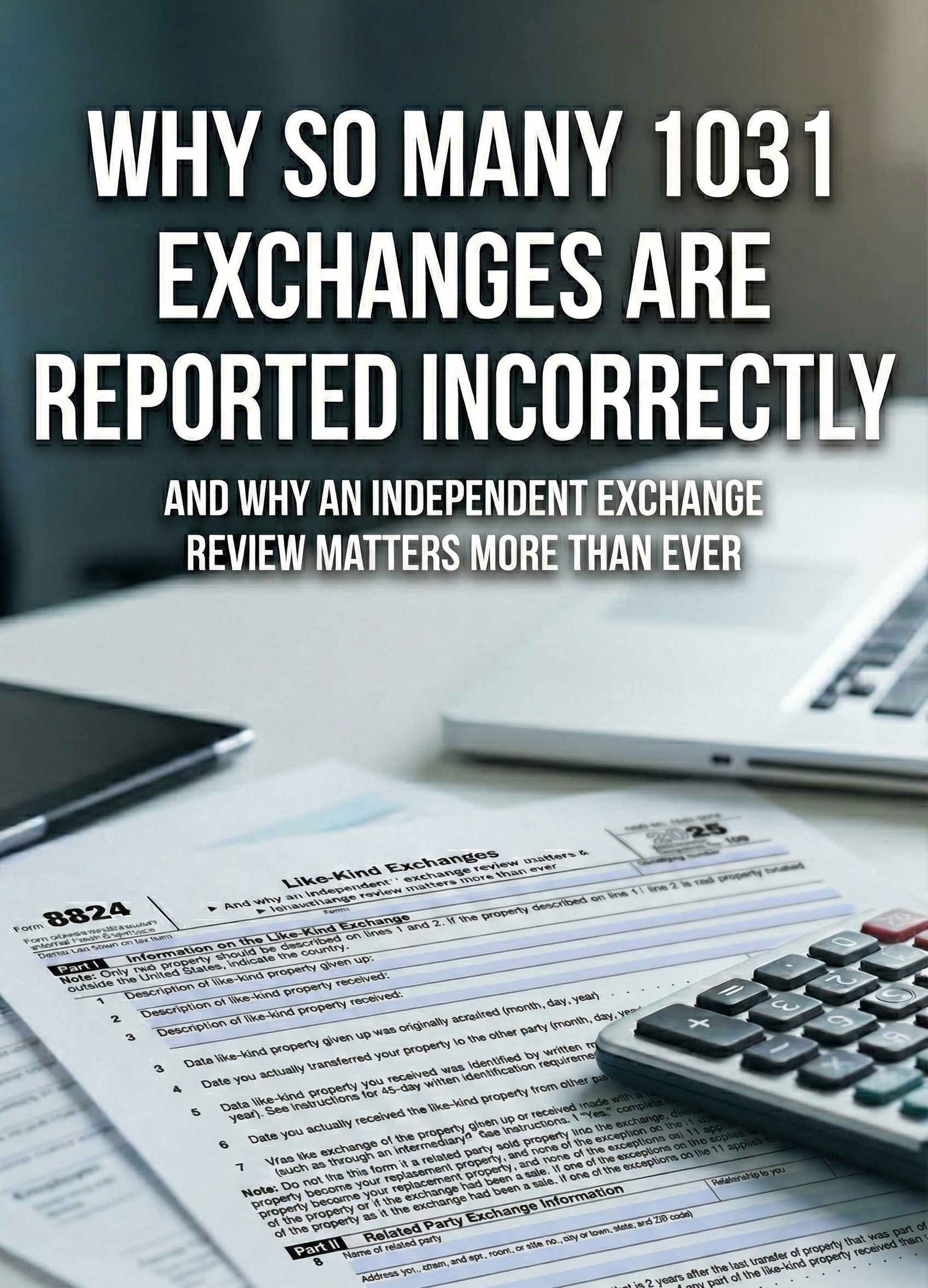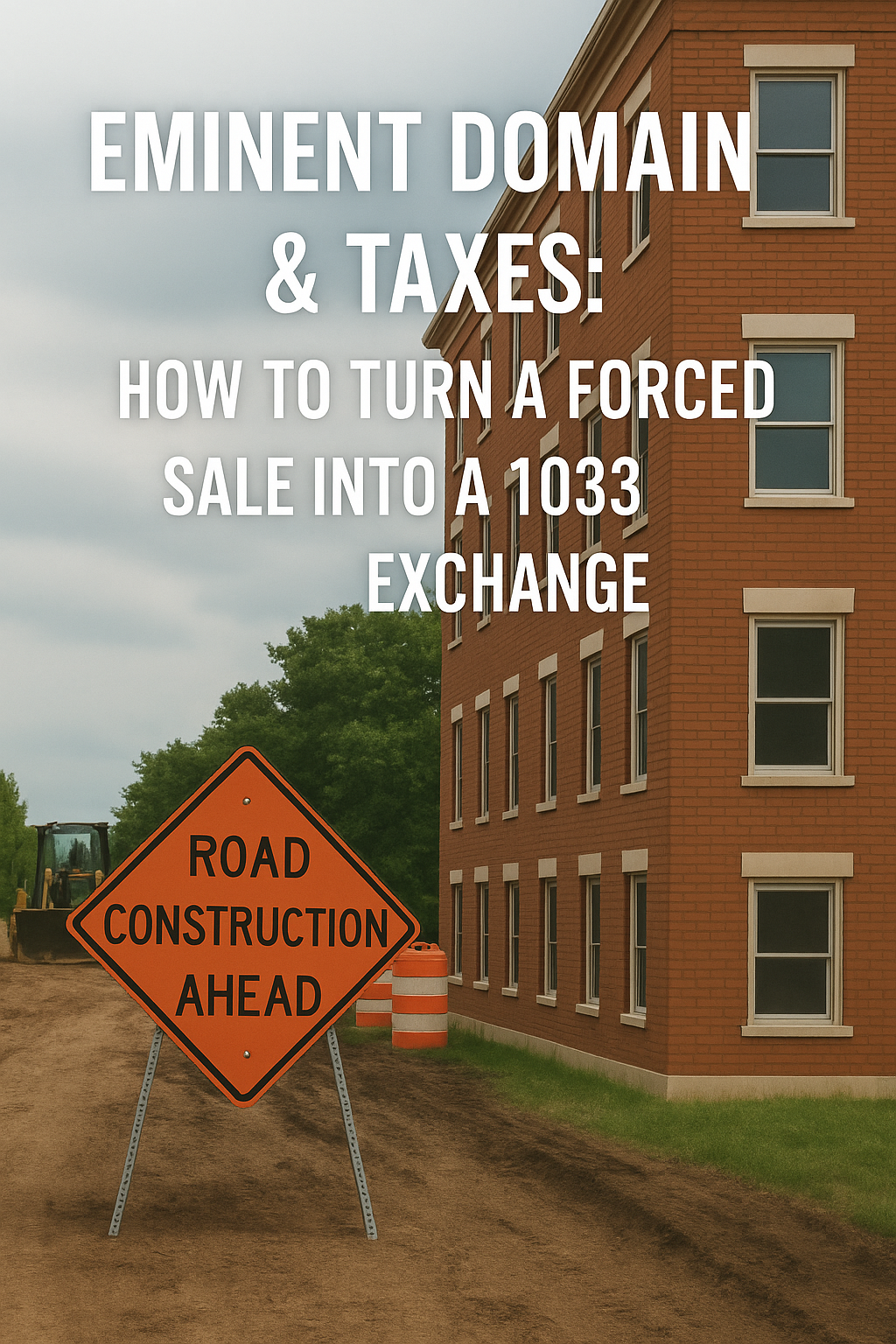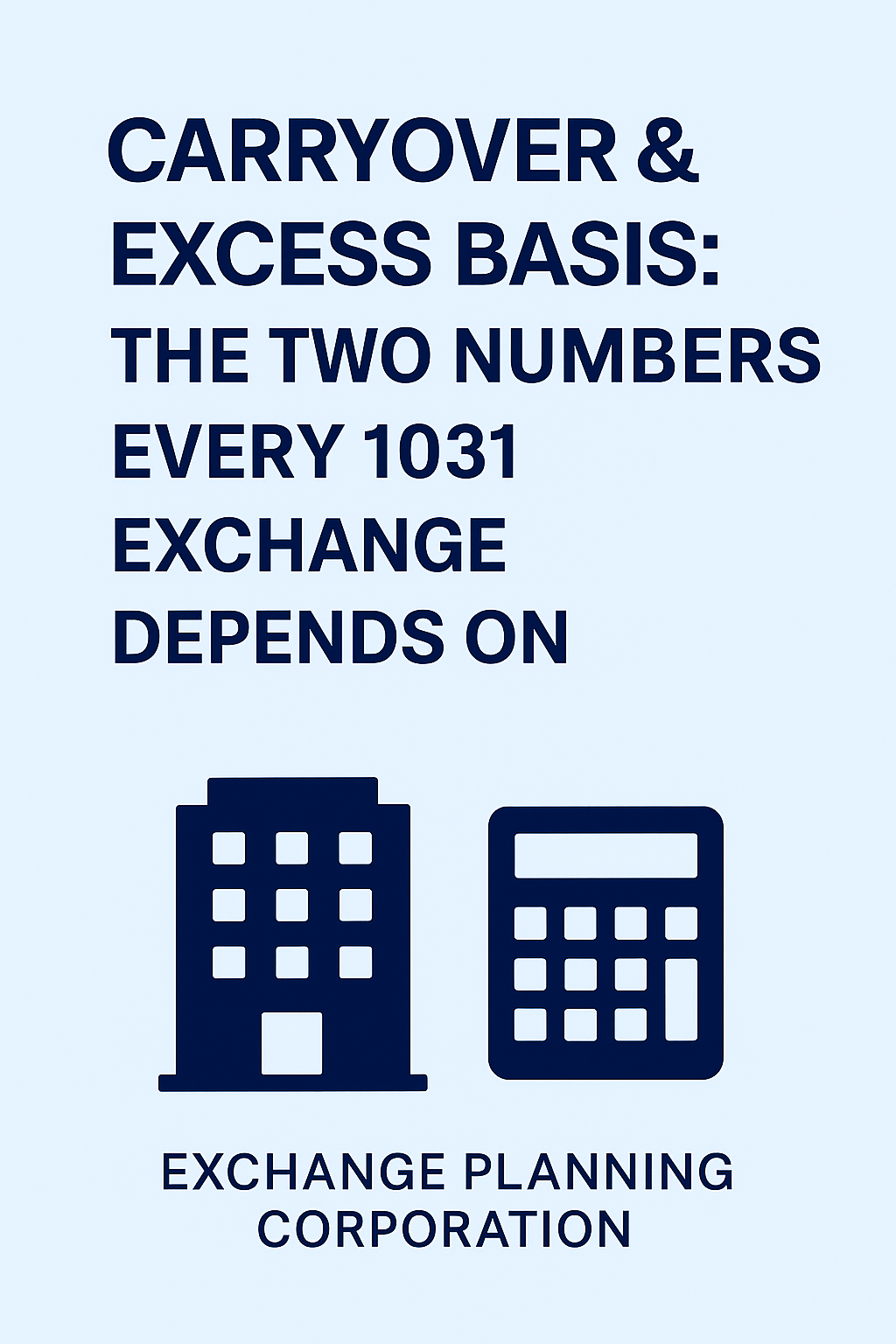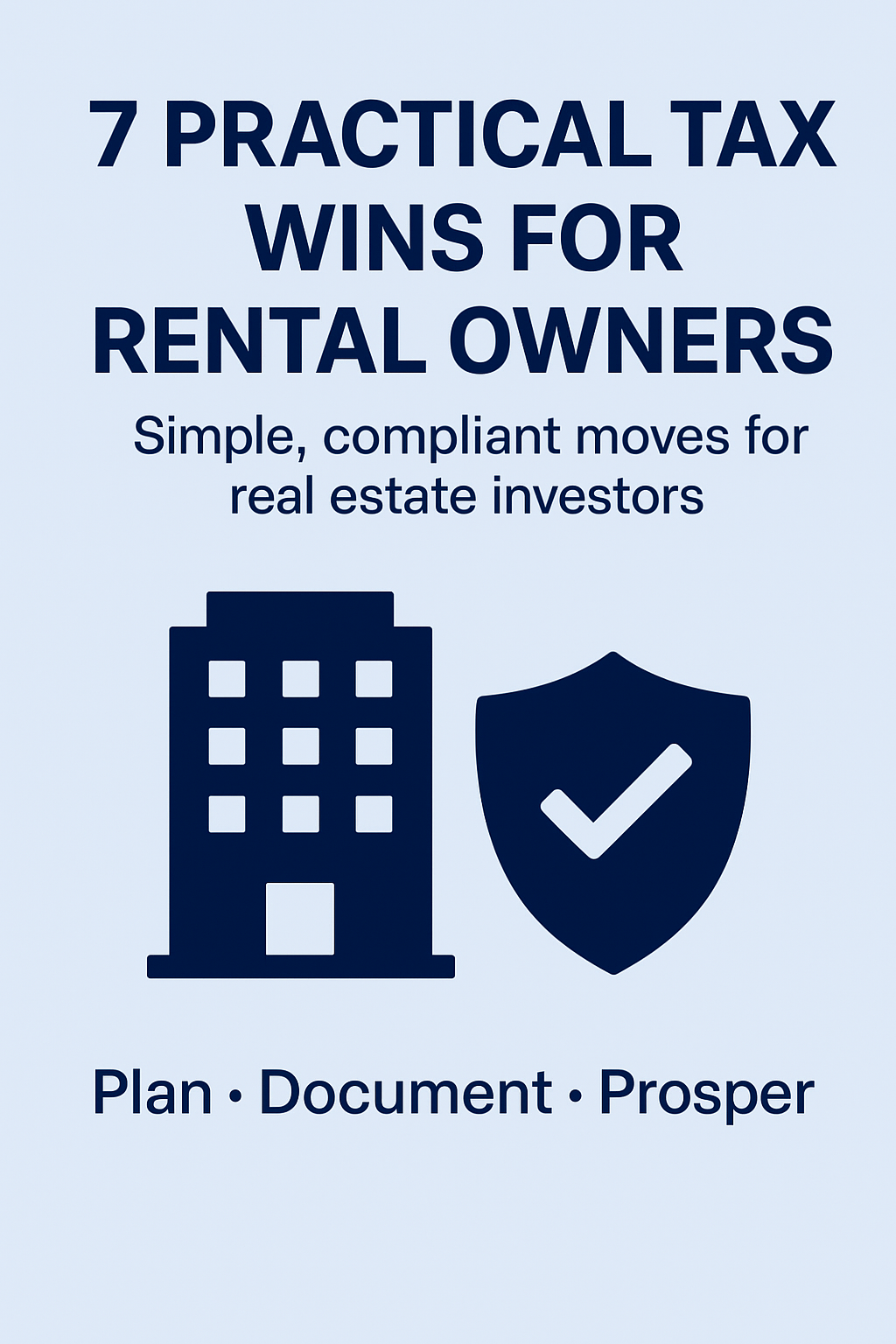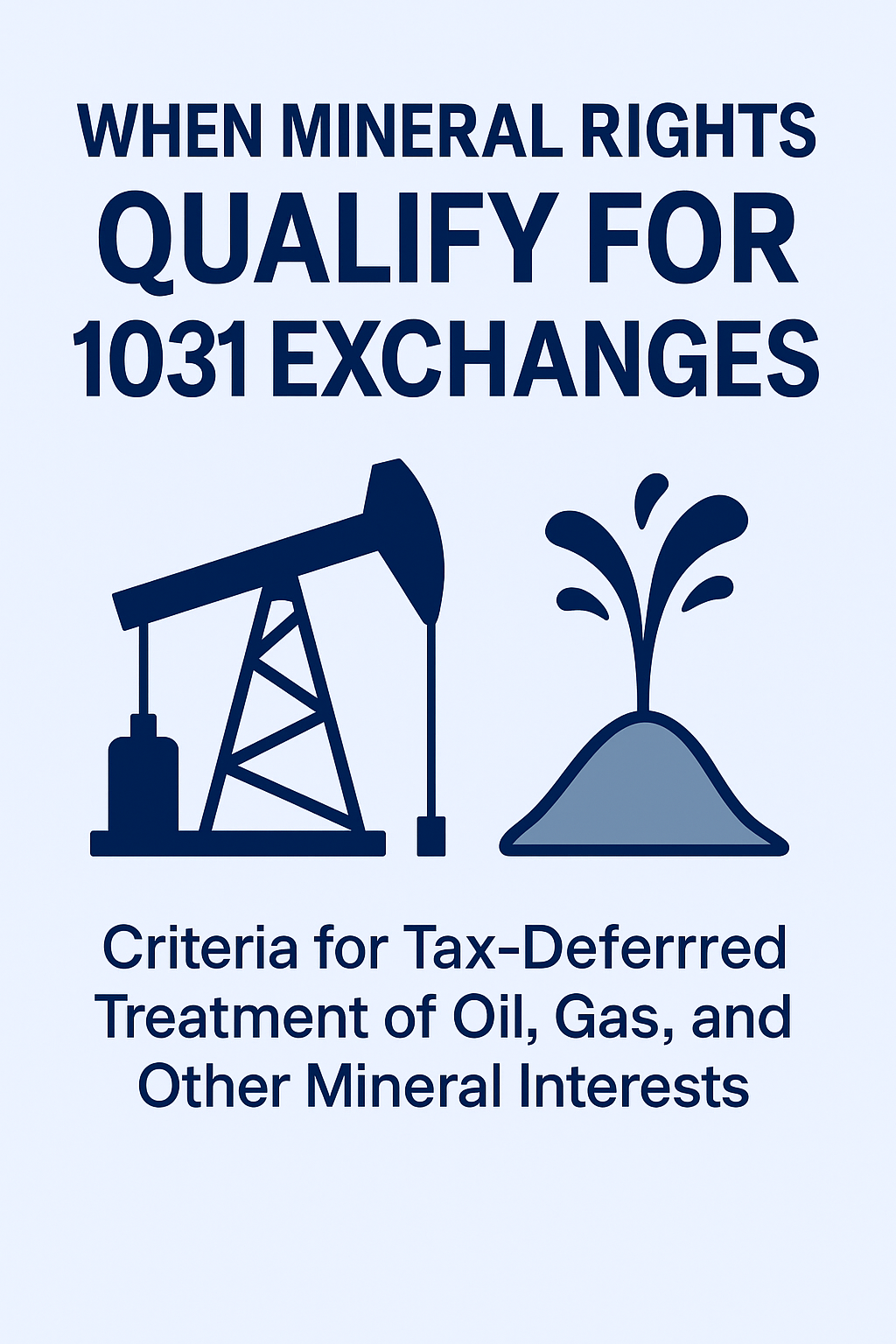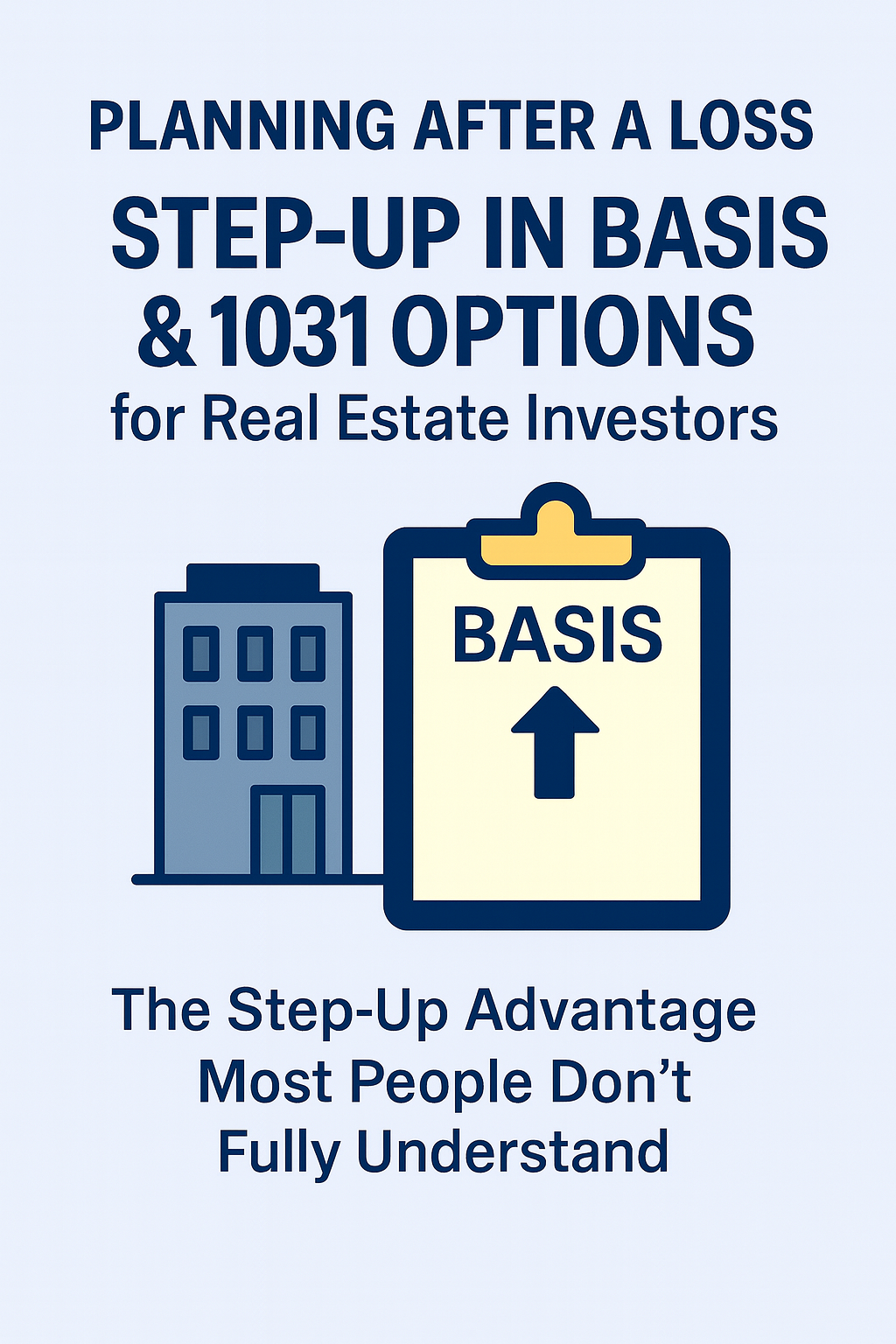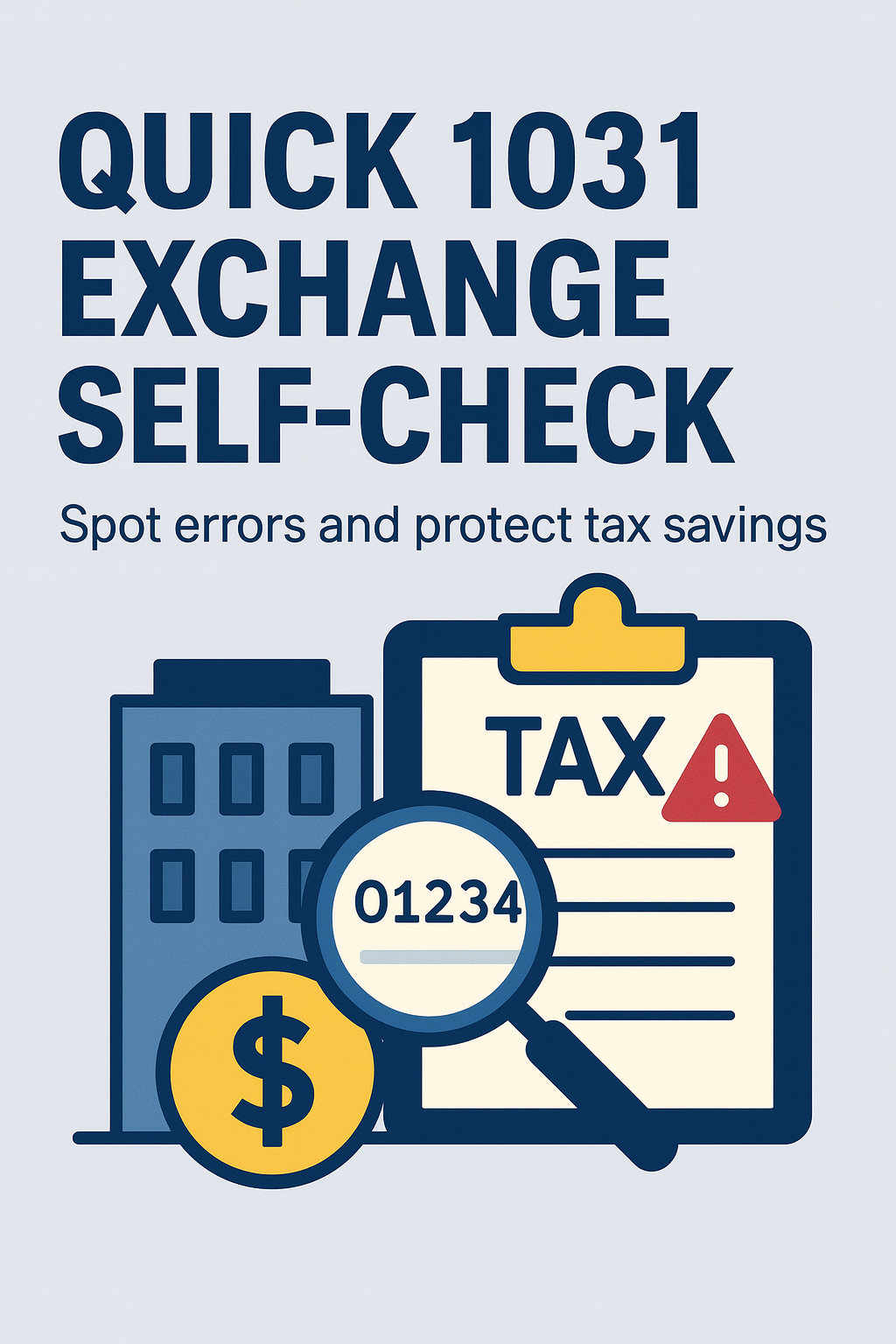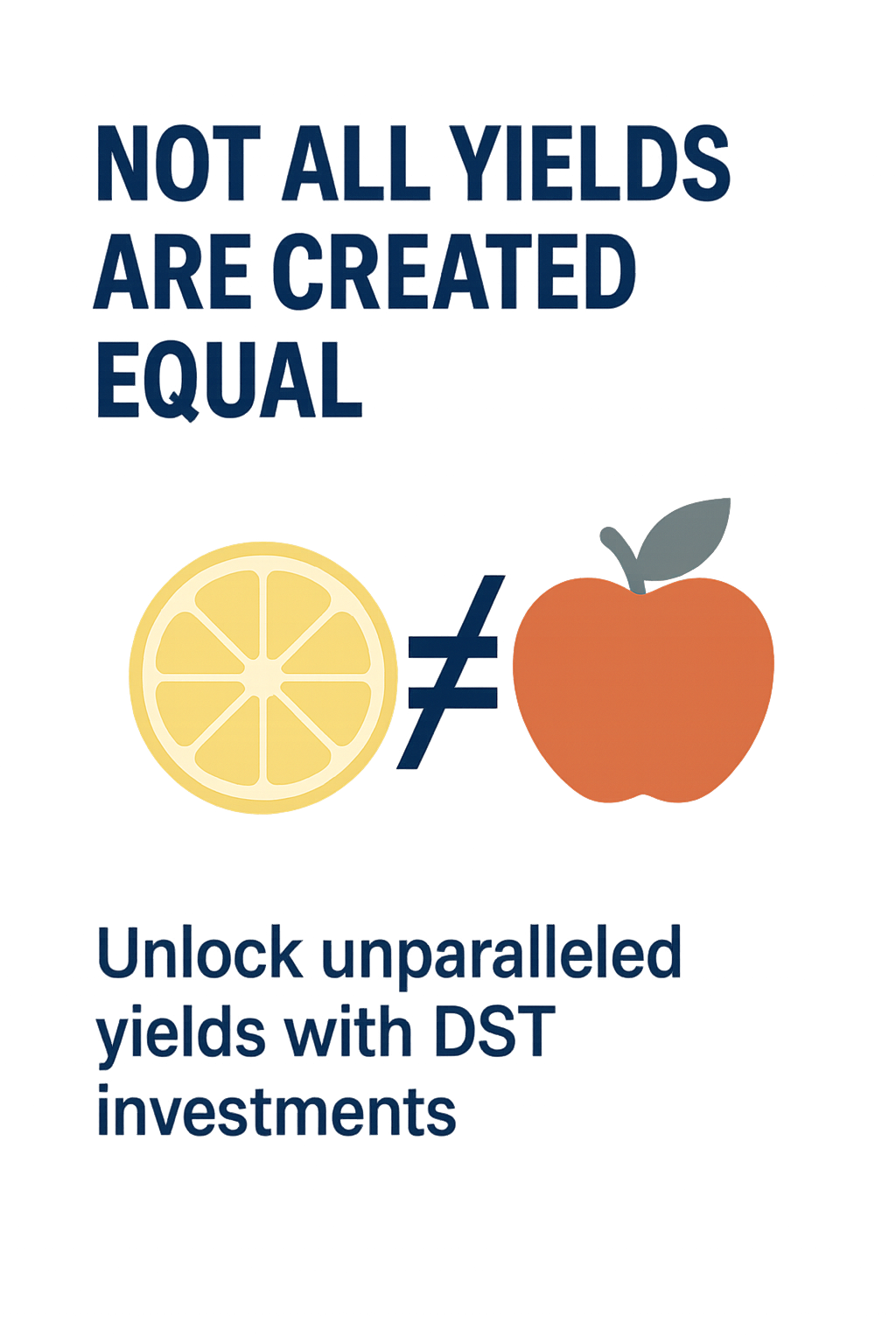Part 2 of 3 in our series on 1031 exchange documentation.
In Part 1, we introduced the idea of exchange documentation and how it safeguards your 1031 exchange. You might be thinking: “I did everything right in my exchange – isn’t that enough? Can’t my regular CPA handle the rest?” Those are fair questions. The short answer is that proper documentation is essential if you want to fully protect your investment and your hard-won tax savings. In this article, let’s explore why taking this extra step is so important for real estate investors like you.
Protecting Every Dollar of Your Gain: The whole point of a 1031 exchange is to defer taxes and keep more money working for you. Proper documentation makes sure that happens. It’s like a safety net that catches any stray details that could accidentally turn into taxable income. When your exchange is documented correctly, you won’t get unwelcome surprises in your tax bill. Instead, you keep every dollar deferred that can be deferred – which is exactly what you set out to do.
Making the Most of Future Benefits: The importance of documentation isn’t just about avoiding a surprise tax bill now; it’s also about setting yourself up for future savings. For instance, the paperwork from your exchange directly affects how much you can depreciate your new property in the coming years. If your replacement property’s tax basis (the amount you can start depreciating) is calculated correctly – something thorough documentation ensures – you’ll maximize your depreciation write-offs. That means lower taxable income from your rentals each year going forward. On the flip side, if the basis is calculated wrong because details were missed, you could be losing out on depreciation and paying more tax annually than necessary. In short, good documentation now equals more savings later.
Why Mistakes Happen (Even to the Pros): You may still wonder, “Okay, but if I have a competent CPA, won’t they get it right?” The reality is, 1031 exchanges are a specialized niche in the tax world. Even very experienced accountants and attorneys might not deal with these every day, and the rules can get complicated. Here are a few reasons even a diligent tax professional could slip up on a 1031 exchange:
- Rare, Complex Calculations: A like-kind exchange isn’t an everyday transaction for most CPAs. It involves adjusting the cost basis, tracking “boot” (cash or non-like-kind property received), and applying specific IRS guidelines. If your deal has unusual elements – say you only exchanged a partial interest in a property, or there were multiple people involved, or odd fees – it gets even more complex. Many tax preparers default to a one-size-fits-all formula, which gloss over unique details of your deal.
- Limited Specialized Training: Most accountants aren’t extensively trained on the fine points of 1031 reporting. They know the basics, but don’t realize, for example, that you don’t necessarily have to replace the exact amount of mortgage debt as long as you reinvest the full net proceeds. Little-known nuances like that can lead to misunderstandings. If they haven’t had specialized education and tools for exchanges.
- Time Pressures and Oversights: Think about tax season – it’s a crunch time. Your CPA might be preparing a hundred returns, working long hours, and juggling deadlines. If your exchange documentation is just another file in a tall stack, there’s a risk they rely on a cursory glance at a summary or assume the numbers from the title company are fine. Without a deep dive into the closing statements (which takes time and focus), important adjustments can be missed. It’s not negligence; it’s human nature when swamped with work.
- Not Their Daily Focus: A top-notch tax professional might handle hundreds of clients, but not have a 1031 exchange for many years in a row. In contrast, EPC deals with exchanges all the daily. That difference in focus means a generalist might use overly conservative or simplistic assumptions just to be “safe”. Those assumptions can lead to you overpaying tax.
- Specialized Tools: Commercial tax preparation software does not have the ability to analyze an exchange. We built our own software. Using our exclusive software we analyze every part of your exchange to maximize your tax benefits. We also calculate and project future depreciation eleven different ways to ensure you maximize your future tax benefits.
All of the above is why proper exchange documentation isn’t about doubting your CPA’s skills – it’s about providing them (and you) with the specialist support needed to get a complex job done right. When you use EPC’s exchange documentation, you’re essentially adding a 1031 exchange specialist to your team. We work alongside your regular tax preparer to catch the nuances they might not catch on their own, before the tax return is filed.
Let’s summarize the core benefits you, as a real estate investor, gain from diligent 1031 exchange documentation:
- No Unwanted Tax Surprises: You maintain full deferral of capital gains as intended. No nasty IRS surprises because some line item was misinterpreted.
- Maximized Deductions and Depreciation: You capture every allowable tax deduction (like certain closing costs or loan fees) and set up your new property’s depreciation correctly. This means more tax write-offs now and in the future – enhancing your investment returns.
- Peace of Mind and Confidence: With everything properly documented, you can sleep easy knowing your exchange will hold up to IRS scrutiny. You won’t be second-guessing whether you did it right; you’ll know you did, and so will your tax preparer.
When you consider these benefits, it becomes clear why exchange documentation is so important. It’s not just bureaucratic paperwork – it’s a smart investment in your investment. It preserves the value of your 1031 exchange and lets you reap the rewards you intended, both today and for years to come.
Wrapping up Part 2: By now, you understand that proper 1031 documentation is a crucial step, not an optional extra. Think of it this way taking our exclusive 1099-EXCH and Basis Reports to your tax professional is like taking them a W-2 for your wages. Without these reports when you have an exchange it is like taking your paycheck stubs instead of your W-2 to your tax professional. Your tax professional is simply not equipped to figure out your wages from you pay stubs. In the same going to your tax professional with your escrow statements is not something your tax professional is equipped to handle.
If you have completed an exchange or are in the middle of one and wondering if everything is in order, it is a good time to talk to us at EPC. A simple conversation can verify if you’re on the right track or if there’s more we can do to help you save money. Remember, investing is not just about the deals you make – it’s also about ensuring those deals deliver the full benefit to you. We’re here to help make sure that happens. Email ExchangeServices@EPC1031.com or call (424) 277-6763 today

